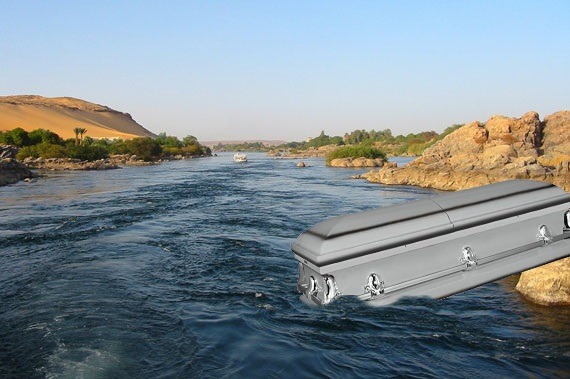Parshas V’zos Habracha
No Good Deed Goes Unnoticed!

“He buried him in the… land of Moav” (Devarim 34:6)
Hashem is very loving and exceedingly just. When you do a good deed Hashem will reward that good deed in a similar way and often through the person you had helped.
An older woman died in a nursing home. She had no known relatives and the nursing home administrator was planning on burying her locally, in an area for the poor of different faiths. After a series of “coincidences” a religious Jew brought her body to New York. He called a few Jewish burial societies to see if they any space. The first few had no space. The next one thought that there was no space either. When they doublechecked, they were surprised that they had one plot left. This woman merited a Jewish burial in a Jewish cemetery. After the burial they discovered an amazing “coincidence”. Many years earlier, this woman and her husband graciously purchased burial plots to donate to the poor. She was buried in the plot that she herself had purchased!
Rabbi Yissocher Frand had tried several times, unsuccessfully, to go to “visit” a relative’s grave. Each time, an urgent matter arose which caused him to postpone it. Finally, the day arrived when he was able to go. As he was leaving the cemetery, he noticed a few people around a grave. They asked him to be the tenth man to complete the minyan, to say kaddish for the person who had just passed away. Had Rabbi Frand not been there, they would have not been able to say kaddish for the benefit of this neshama. After they said kaddish, Rabbi Frand noticed the name of the deceased. It was the man from Seattle who, years earlier was instrumental in helping to send Rabbi Frand to attend Yeshiva high school. Hashem orchestrated events to arrange for Rabbi Frand to be at the cemetery at this exact moment. This enabled Rabbi Frand to give honor to this deceased person. This was a fitting appreciation for what the man had done for him.
Rashi tells us that Hashem, Himself, buried our great leader Moshe. The Midrash asks, “What special merit did Moshe have to receive such an honor?”
The Midrash answers that at the time of redemption from Egypt, all the Jews were busy getting gold, silver and other riches from the Egyptians, as Hashem had requested them to. During this time Moshe busied himself looking for Yosef’s coffin. Before Yosef’s death, the Jewish People had promised that they wouldn’t leave Egypt without taking Yosef’s body with them. Moshe searched tirelessly for three days and three nights, looking all over for Yosef’s coffin. However, he couldn’t find it. Moshe met Serach, Yaakov Avinu’s granddaughter, who was still alive. She told him that the Egyptians had placed Yosef in a heavy metal coffin and sunk it in the Nile river. The Egyptians wanted this tzaddik’s body to bring blessing to the River, causing it to overflow to irrigate their land. They also wanted to ensure that the Jews would never leave Egypt since they wouldn’t be able to find Yosef’s body. Serach showed Moshe exactly where the coffin had been placed. Hashem performed a miracle and Yosef’s coffin rose from the river. Then Moshe took it and carried it away. Hashem told Moshe because you ignored the riches from Egypt to take care of Yosef’s body, I, Myself, will take care of your burial. It was a special merit for Yosef to have Moshe Rabbeinu, himself, be involved in finding and raising his body for burial in Eretz Yisroel. It is interesting to note that it was Yosef, himself, who was involved with burying Yaakov Avinu and he merited that Moshe himself should be involved in his burial.
The Talmud (Sota 13A) praises Moshe for being involved in a mitzvah instead of gathering wealth. The Midrash concludes- Hashem said to Moshe, “You feel that your action [of looking for Yosef’s body] was something insignificant. Your act of kindness was great because you ignored the opportunity to gather riches. I too will act kindly to you and be involved in your burial”.
Hashem repays us for every single act of goodness that we do, measure for measure.



